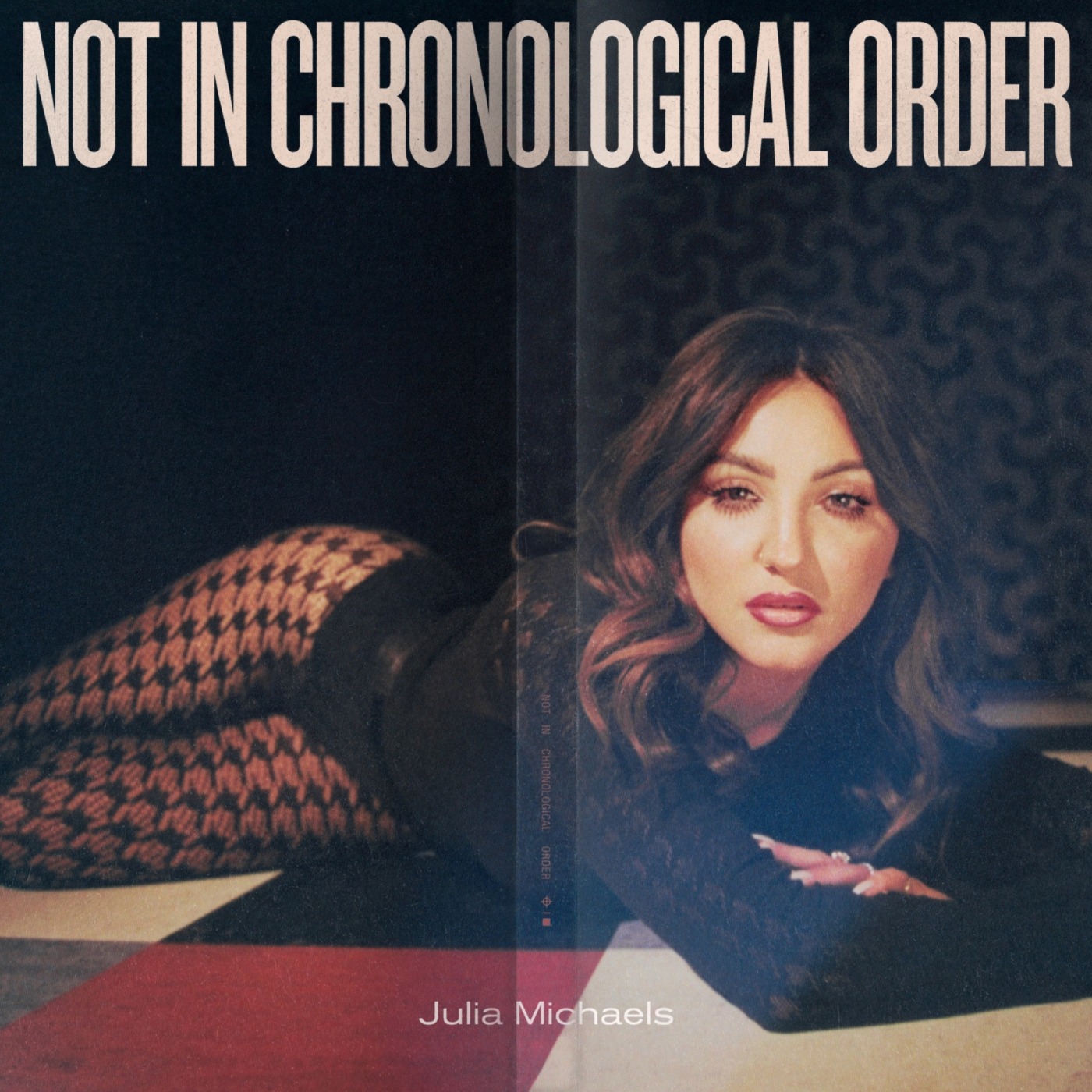Julia Michaels ‘Not In Chronological Order’ review: catchy love songs lacking cohesion
Julia Michaels has been writing hits for other artists for years, with credits on tracks like Justin Bieber’s ‘Sorry’ and Selena Gomez’s ‘Bad Liar’. However, in her debut album Not In Chronological Order, she keeps some hits for herself. Her pop sound and unique vocal tone have become recognisable alongside her cheery production and contrastingly honest unfiltered lyrics.
Opening track ‘All Your Exes’ begins the album with a bang and stands as probably the most hit-worthy of the project. The outrageously bold lyrical content continues Julia’s tendency of saying what we are all too scared to as she declares, “I want to live in a world where all your exes are dead.” The opener introduces a key theme of the album: past relationships and their effect on finding new love.
This theme is continued later in my favourite track ‘Wrapped Around’, another song excitably bold in its lyrical content. Here is Julia doing what she does best: turning heartbreak into a bittersweet upbeat track with a splash of revenge. The playfulness of the track with Julia’s rhetorical “How does that taste?” and childlike giggle add those subtle artist quirks that infuse personality into a song.
Michaels exemplifies her ability to write catchy pop songs with these tracks but perhaps does so at the cost of a cohesive collective project. The album almost feels like standalone songs thrown together, perhaps a result of her career writing individual tracks for other artists. Her style is distinct throughout and she has no problem finding her sound, but the pacing is sporadic, and some songs get lost amongst the chaos.
By having the album lack a chronological order, her lyrical intentions feel unfocused and absent of growth
Contextualising the reasoning behind the album title, Michaels said, “When I was looking at the tracklisting, it literally was not in chronological order of the events that it took place in my life.” As a result of the subsequent shuffling together of different events, some messages got lost in the back and forth. By having the album lack a chronological order, her lyrical intentions feel unfocused and absent of growth.
The album is particularly conflicted in its attitude towards an ex. In ‘Love Is Weird’, Julia claims to have “laid to rest” all the “people in my past” yet several tracks later in ‘Undertone’, she admits that her exes are always lingering in her mind: “Every time I find somebody new/ I hope that the memory of you will leave me alone.” The matured message of ‘History’ about knowing and accepting the past of your partner and being able to move forward together as a result is disregarded by its placement on the tracklist before the bitterness of ‘Undertone.’ If displayed in a logical order, these lyrics could track the growth and healing that comes with letting yourself love someone new and letting go of those who held you back. Instead, the idea gets hidden, and the album becomes contradictory.
For Michaels, “the arc of this album” is that “I’m not bitter about love anymore. I know what functional love is like and being in love and being hesitant about that love because it feels so perfect.” Again, this message feels lost. If ‘Pessimist’ and ‘Little Did I Know’, the two tracks which most strongly present her growth and ability to love functionally, had been placed at the end we could have seen a progression from the toxic, but playful, world of ‘All Your Exes’ and ‘Undertone’ to a new matured and accepting relationship.
The irony of criticising an album called Not In Chronological Order for not being in chronological order is not lost on me. Michaels clearly knew what she was doing when arranging her project and her intentions are clearly visible. The songs individually are great, and this is a solid debut album, but with a little reshuffling the collective project would have stuck more firmly with listeners.
However, Michaels does bring the album to a solid conclusion with ‘That’s The Kind Of Woman’ in which she insists she loves herself but admits that “I’d love her more” if her negative traits were to leave. When describing the tracklist, Julia said “a lot of the heartbreak came in the middle, and finding new love came at the end” perhaps indicating that this new love did not come from a relationship, but herself.
Throughout the project it becomes clear that Michaels knows she has a lot of growing up to do. I have hope that this is something we will get to watch her do in her future albums.
WE RECOMMEND: ‘Pessimist’
(Photo: Chuff Media)

Comments